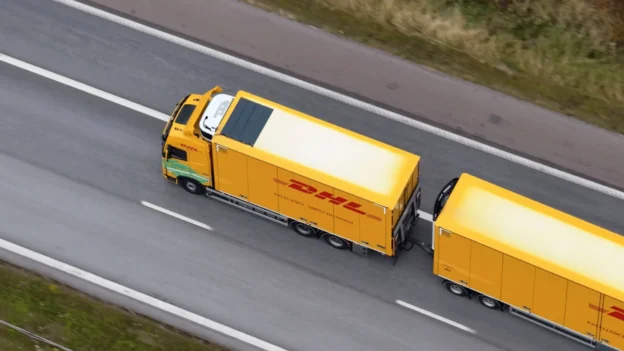Green Energy and DHL Freight Sweden have initiated a pilot project to evaluate solar panels on trucks powered by alternative fuels. alternative fuels . The trial, which will run for 12 months, is being carried out on ten vehicles on routes from Luleå to Skåne, under varying weather conditions.
Solar panels on trucks for lower fuel consumption
The trucks involved, Scania and Volvo models, run on hydrotreated vegetable oil (HVO) and liquefied biogas.
liquefied biogas
(LBG). Each unit is equipped with thin-film solar panels.
The installed systems include 240 Wp configurations on eight trucks and 320 Wp on two others, all connected to a proprietary load controller and the Fleet Tracker platform, which allows real-time performance monitoring.
Previous results and expectations for cleaner fleets
According to Green Energy, the technology has already achieved reductions of between 4% and 7% in fuel consumption and CO₂ emissions in diesel fleets. Now the goal is to validate that impact in units that use cleaner energies such as HVO and LBG, with the expectation of replicating or surpassing the benefits previously obtained.
DHL Freight Sweden Sustainability Manager Ylva Öhrnell stressed that this pilot is a natural extension of its decarbonization initiatives.
We already operate electric and biofuel vehicles. Incorporating solar energy allows us to explore an additional layer of operational efficiency and sustainability.
He stated.
Technology designed for heavy haulage
The solar panels used are specifically designed for heavy mobility applications. They are ultralight, fire and weather resistant, and fit on roofs without compromising vehicle aerodynamics. Companies such as FlixBus, PostNord and DFDS have already tested similar solutions with positive results.
For Green Energy, this collaboration represents a strategic step towards the cross-cutting application of solar energy in all types of fleets, beyond diesel. The pilot with DHL Freight Sweden is a concrete example of how solar technology can be integrated with alternative fuels to achieve more sustainable logistics operations.
Source and photo: Green Energy

